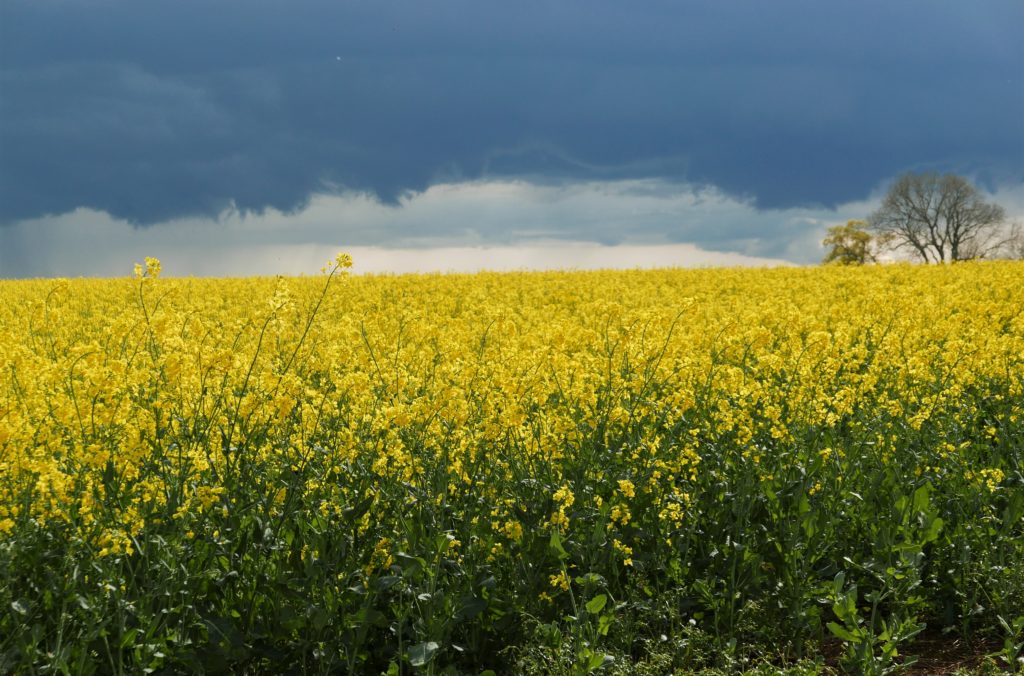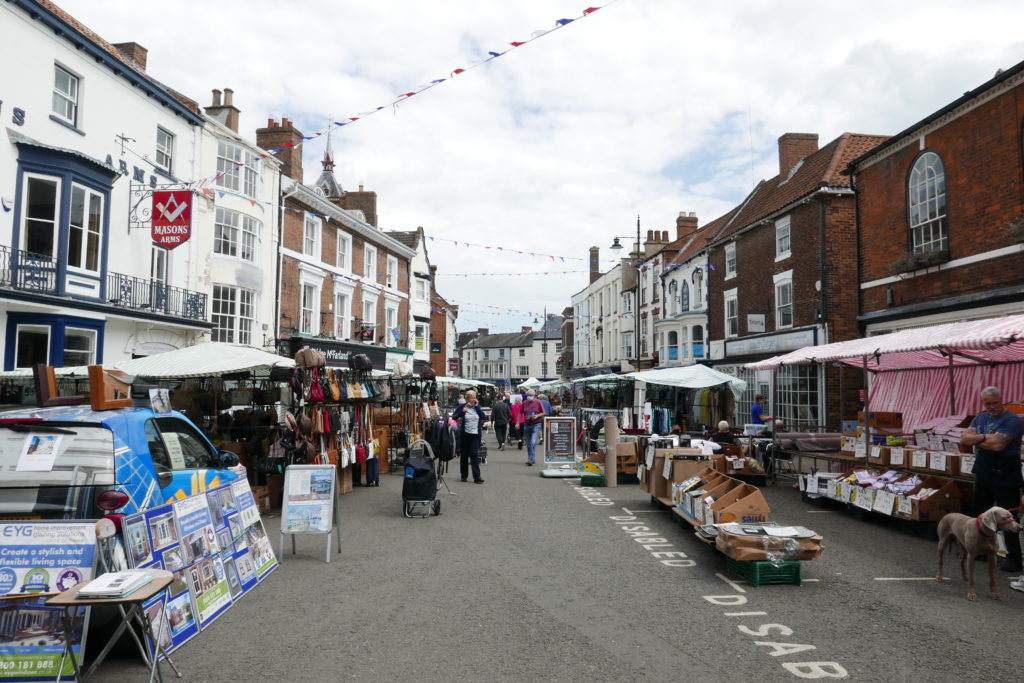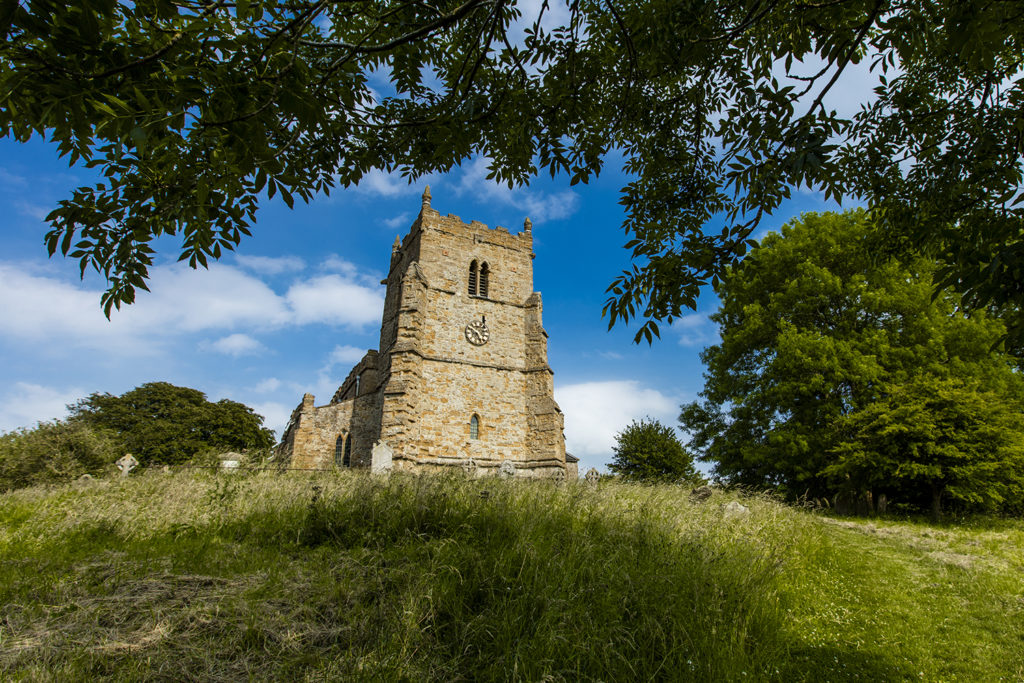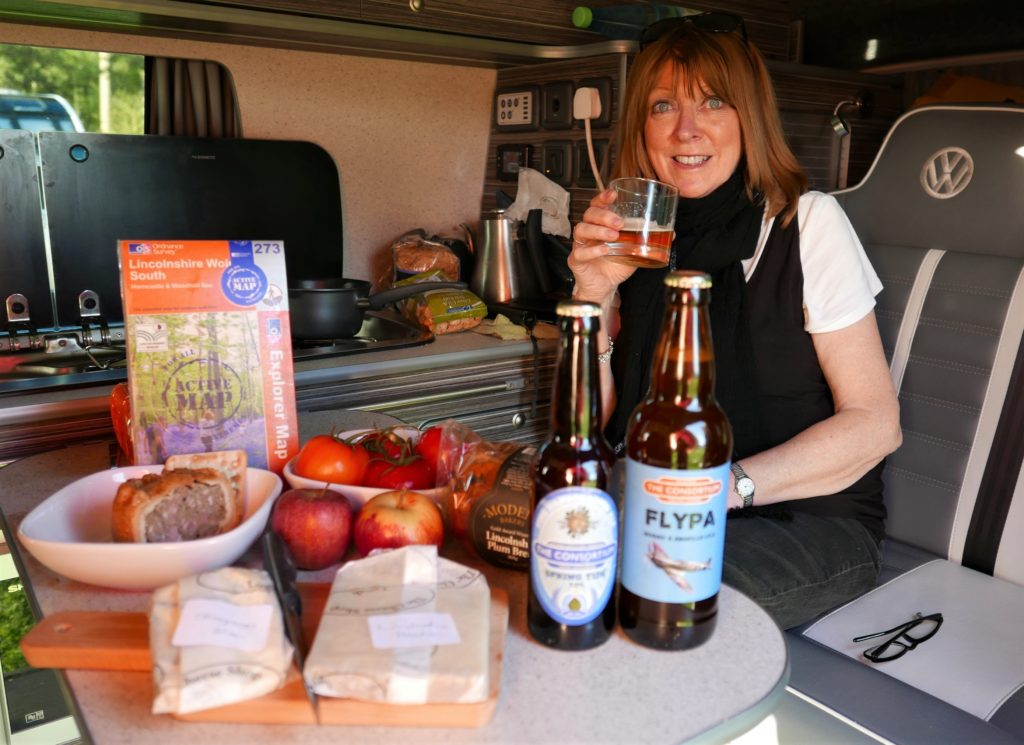A GREY evening mist was hanging like a motionless ghost over the sodden, green fields where my father spent back-breaking days digging the clogged-up ditches over half a century ago.
That primeval scent of cattle dung and damp grass filled the air as I strode along an ancient footpath close to where he had toiled so long ago.
Like the spectral fret itself that had crept in from the nearby North Sea, my memories of those distant days flickered weakly as I recalled his comings and goings to those dreamlike fields.
I was not in the rugged West of Ireland, the homeland he left as an inquisitive boy at 14, but amid the rolling hills and chalk valleys of England’s fertile hidden gem, the Lincolnshire Wolds.
Born to Irish parents just 20 miles away in the Trentside market town of Gainsborough, I was on a journey of discovery, as The Wolds have always been those unknown hills that stood solitary guard over a county that is as flat a Grimsby flounder.
 A threatening sky near Bluestone Heath Road (Pictures Sue Mountjoy)
A threatening sky near Bluestone Heath Road (Pictures Sue Mountjoy)With the pandemic still making foreign holidays a stress-filled lottery, my campervan road tour of this haven of snoring villages, Christmas card market towns and well-tilled fields bursting with scooting rabbits and squawking pheasants, was an uplifting epiphany.
It was easy to understand why countless young Irishmen, like my father, were drawn here by the farm work and opted to hang their hats amid the canny country people and pretty cottages that reminded them so much of home.
For me this truly was home – a fact that became clear as I stepped from the parked van in Binbrook and heard that familiar accent: “You’re jest beein’ o’ertaken by the world’s faarstest cyclist.”
The joke came from a smiling elderly man in a high-vis yellow jacket, struggling on a wonky bicycle, as he passed by and saw me admiring the soaring, wheat-brown tower of the village church, nicknamed the Cathedral of the Wolds for its commanding aspect.
I was there to prod one of my favourite memories when, as a young 1970s trainee journalist, I had an adrenalin-pumping flight across Northern England in a rocket-like RAF Lightning jet from the village airbase, which closed in the 1980s.
 Louth market in full swing
Louth market in full swingAny visit to the Wolds cannot escape such examples of the so-called ‘Bomber County’s’ front-seat role in the country’s aviation history, particularly in World War Two when its closeness to Europe saw it become a patchwork quilt of military air bases.
And so it was that my journey, along with my partner and photographer Sue Mountjoy, took in the most iconic of those bomber units, the top-secret Dambusters, and the Petwood Hotel, which became the officers’ home after the legendary Ruhr dams raid in May 1943.
As we sat in the darkly panelled Squadron Bar, surrounded by a treasure trove of memorabilia including a branch from a tree that became embedded in one of the squadron’s low-flying Lancaster bombers, it was easy to imagine the scenes of wild celebration, as well as commiseration, among those brave young men in blue who lived such bright and, mortifyingly, short lives. The exception Johnny Johnson, a bomb aimer and now aged 99, is the last surviving flying member and still pops up from his Bristol home for reunions.
 Walesby Church was a picturesque spot captured during James and Sue's Lincolnshire trip
Walesby Church was a picturesque spot captured during James and Sue's Lincolnshire tripNearby Woodhall Spa lost its popular mineral springs when the well collapsed in 1983 (a new one is being worked on), although the quaint village’s air of quirky gentility has long drawn coachloads of ageing aviators and their relatives, as well as plenty of day trippers, to its shops and cafes.
Among the latter, the tireless Janet Hunt, whose tea rooms bear her name, told me how for many years she has helped clean the Dambusters Memorial, which receives visitors from across the world, who all pop in for tea and cakes among her stacks of wartime flags, hats, medals and other souvenirs.
“One veteran Lanc pilot told me he was playing cards with a colleague when they had to dash off on a raid,” she recalled. “His friend was killed but the pilot didn’t check the hand of cards he left behind when he returned – he just shuffled them.”
 A Lincolnshire Wolds feast, campervan style
A Lincolnshire Wolds feast, campervan styleIt’s easy to appreciate Woodhall’s magnetism for visitors with its wide appeal, from the Jubillee Park’s heated open-air swimming pool to the 99-year-old Kinema in the Woods (complete with resident organist) and the heathland-based Hotchkin golf course – still rated in the top 100 in the world.
Indeed, my memories were stirred when I read that my boyhood golfing hero Tony Jacklin, Lincolnshire born and bred, could never do better than a 70 score at Woodhall Spa. As he later said: “To win the Open Championship, to win the US Open and to break 70 at Woodhall Spa - two out of three ain't bad!”
WHERE TO STAY:
Goboony is a sharing platform connecting motorhome and campervan owners with travellers. They have over 1,000 vehicles available to rent in the UK sleeping between 2 and 8 people. For more information visit www.goboony.co.uk or call 0203 856 3048. Prices average £90 per night (Jun - Sep)/£60 per night (Oct - May).
Kenwick Park Hotel, Louth (01507 608806; kenwick-park.co.uk) has doubles from £79 B&B.
The Elm Tree, Hundleby (01790 753534, elmtree.co.uk) is a charming and multiple award-winning luxury B&B nestled south of the Lincolnshire Wolds. Doubles from £100 B&B.
Brackenborough Hall Coach House (01507 603193, brackenboroughhall.com) is a perfectly placed self-catered accommodation perfect for young families from £168.
The Old Granary, Owmby (01652 462482, theoldgranarylincolnshire.co.uk) is a self-catered high-quality, recently converted barn in North Lincolnshire. Ideal for couples from £95.
For more information on everything to do in the Lincolnshire Wolds, visit lovelincolnshirewolds.com.

